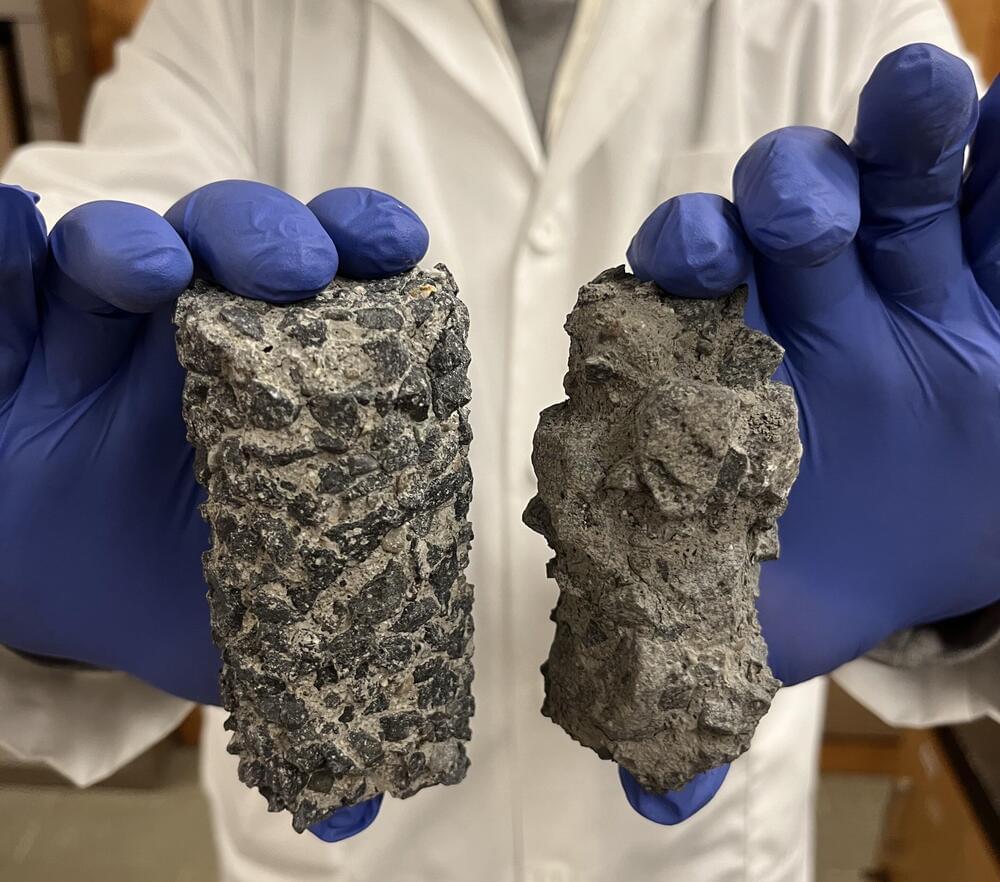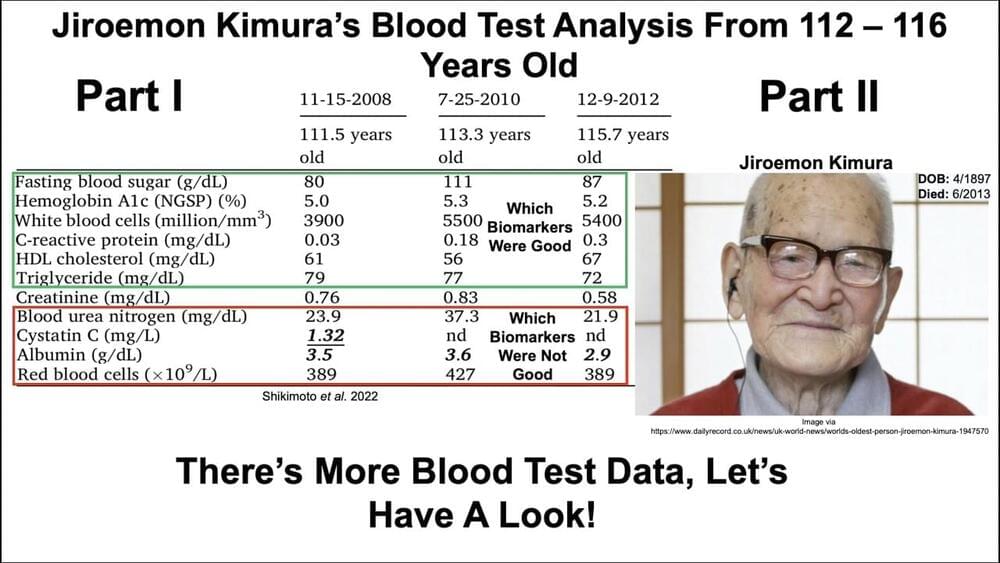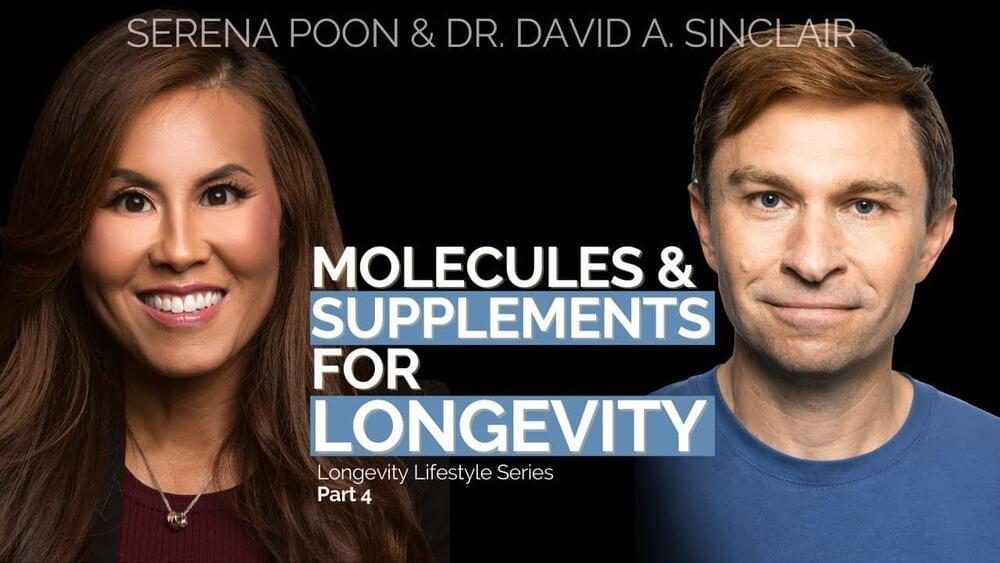Feb 18, 2022
Tracking Biomarkers of Aging
Posted by Mike Lustgarten in categories: biotech/medical, chemistry, life extension
The basics for tracking include blood biomarkers that have been studied for 50 – 100+ years, depending on the biomarker. Most of these biomarkers are commonly measured at a yearly physical, and are relatively cheap (35 $USD for the standard chemistry panel and complete blood count).
















